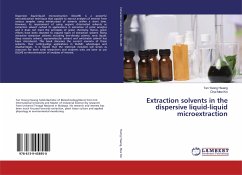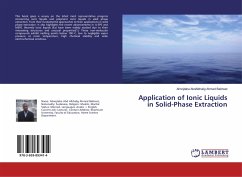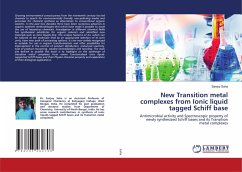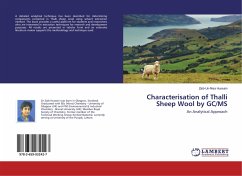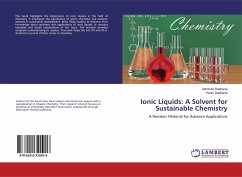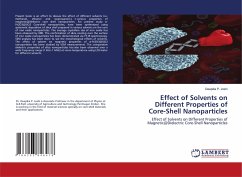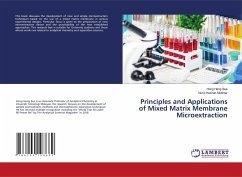Dispersive liquid-liquid microextraction (DLLME) is a powerful microextraction technique that capable to extract analytes of interest from various samples using miniaturized of solvents within a short time. However, its requirement of using organic chlorinated solvents as extraction solvent curbed its applications in extraction of polar analytes and it does not meet the principles of green chemistry. Hence, great efforts have been devoted to expand types of extraction solvent. Many attractive extraction solvents including low-density solvent, ionic liquid, deep eutectic solvent, supramolecular solvent and switchable solvent has been introduced. This book discusses the current scenario of these solvents, their cutting-edge applications in DLLME, advantages and disadvantages. It is hoped that the materials included will serves as resources for both early researchers and students who are keen to use DLLME as microextraction of analytes of interest.
Bitte wählen Sie Ihr Anliegen aus.
Rechnungen
Retourenschein anfordern
Bestellstatus
Storno

